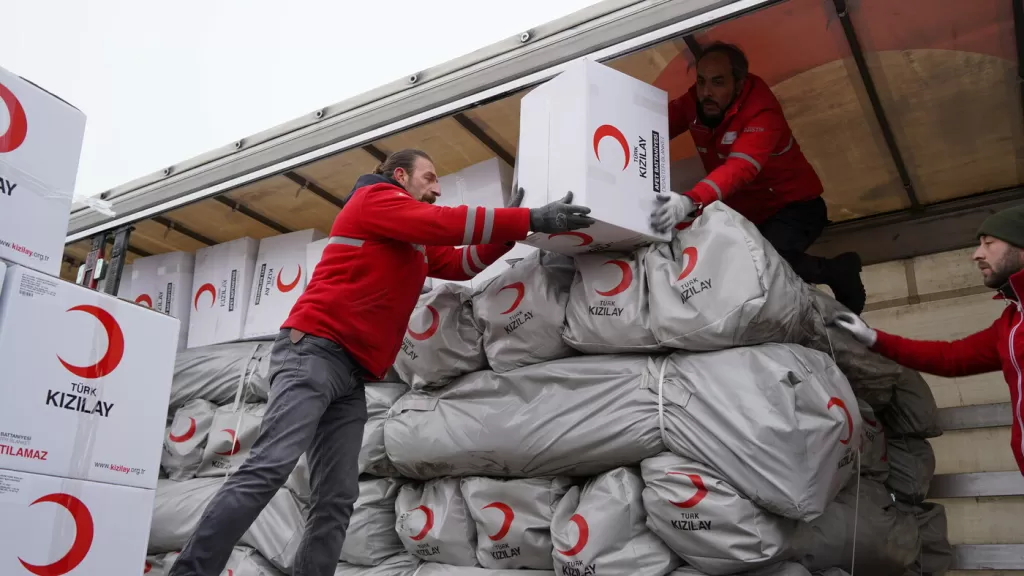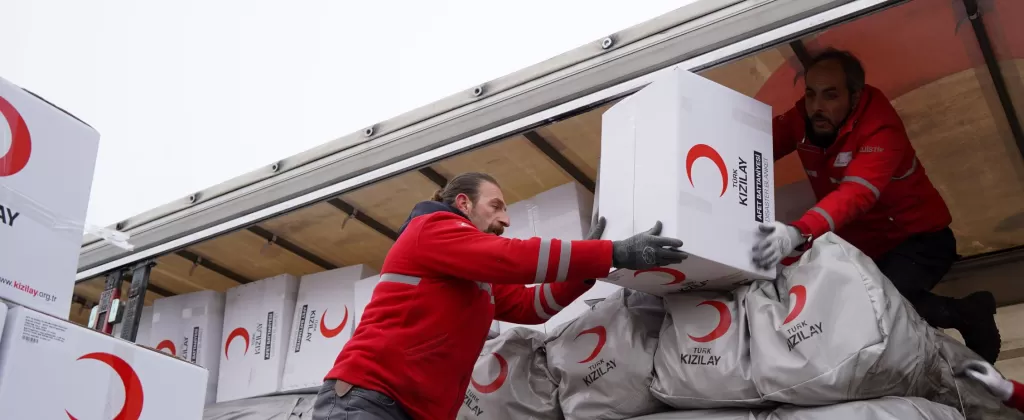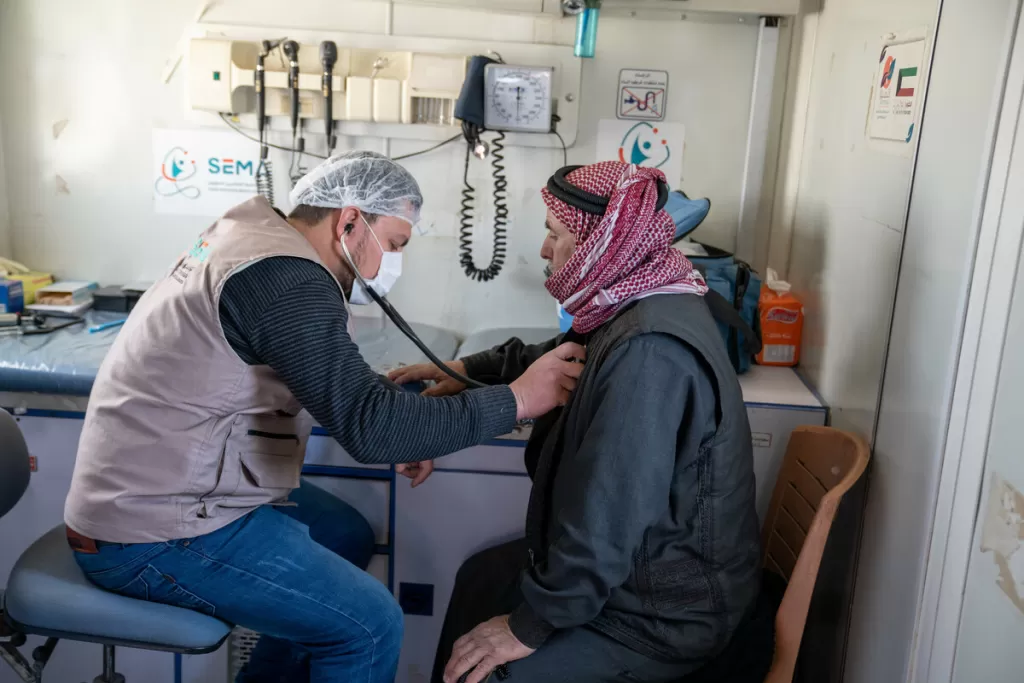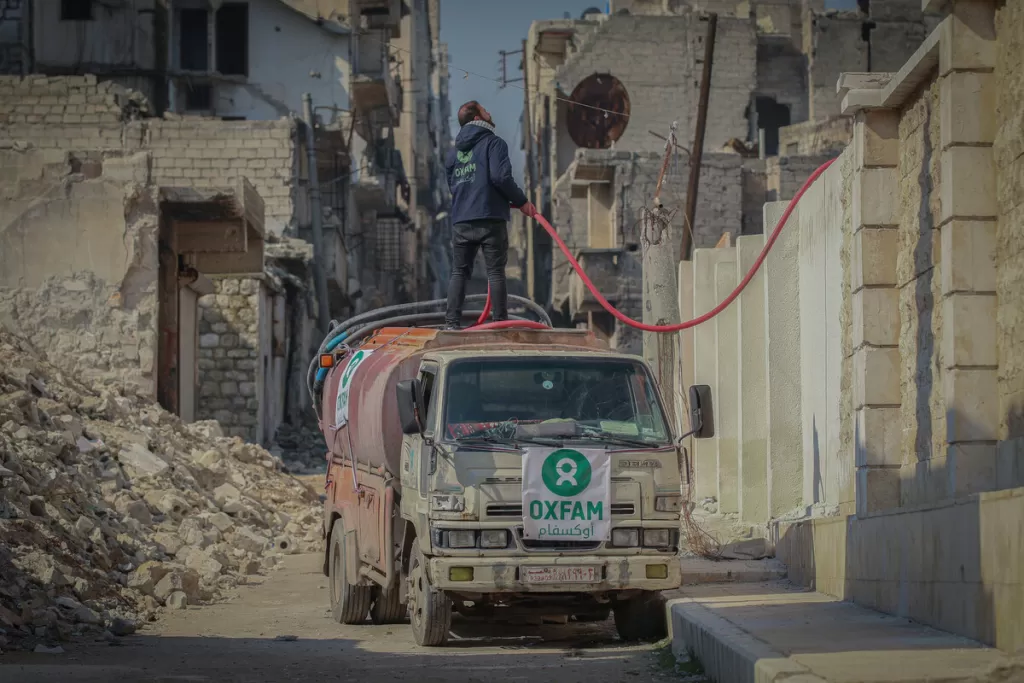In the first 6 months of the response, DEC charities in Syria provided:
Water
913,000 people were provided with access to safe drinking water through rehabilitation of water points, establishment of water stations, and water trucking.
One DEC member used water tankers in the immediate aftermath of the earthquakes to give over 7,200 households access to safe drinking water. The charity also provided water storage tanks for over 8,600 people and helped to repair 17 water stations and six water networks.
Another member improved access to safe water for 597,000 people by supplying generators, repairing damaged water networks and installing water tanks in affected areas.
Food
143,00 people received food assistance through emergency food parcels and vouchers for food.
Many DEC charities used appeal funds to provide food over several months to make sure support was substantial and long-term.
One DEC charity delivered emergency food parcels to over 5,400 households in the first six months following the earthquake including rice, bulgar, lentils, pasta, oil and margarine. These parcels aimed to give enough food for an average family of five for a three-month period.
Another distributed over 7,200 ready to eat food parcels in the same period. These were given to shelters and families taking care of orphans under the age of 16.
Shelter & essential items
103,000 individuals received household items such as blankets, plastic sheeting, kitchen items and clothing.
As the earthquakes occurred amidst harsh winter conditions, DEC member charities have been assisting displaced families with temporary shelters, blankets and mattresses, warm clothes, and heating support.
One member and its partners distributed 696 tents during February and March, supporting 3,890 people, and kits with blankets and mattresses supporting 5,830 people. Furthermore, heating support including stoves or fuel was provided to 1,180 families, supporting a total of 6,350 people.
As well as tents, another DEC member used DEC funds to build 400 ‘better shelter’ units. These flat-pack, temporary single-room buildings are more robust than tents. They have a lifespan of three years and are built to withstand a variety of weather conditions.
The humanitarian response in Turkey
The two earthquakes in southern Turkey directly impacted 9.1 million people with over 50,000 people being killed. Three million people in Turkey were displaced to other parts of the country as 300,000 buildings were severely damaged or destroyed.
While government-led efforts are underway to move people to formal settlements, in May 2023 an estimated 1.6 million people are still living in informal settlements often close to destroyed or damaged houses.
The need for humanitarian support to the most vulnerable people remains urgent, particularly in the informal camps. NGOs and government entities continue to play a crucial role in providing support to these areas.


















